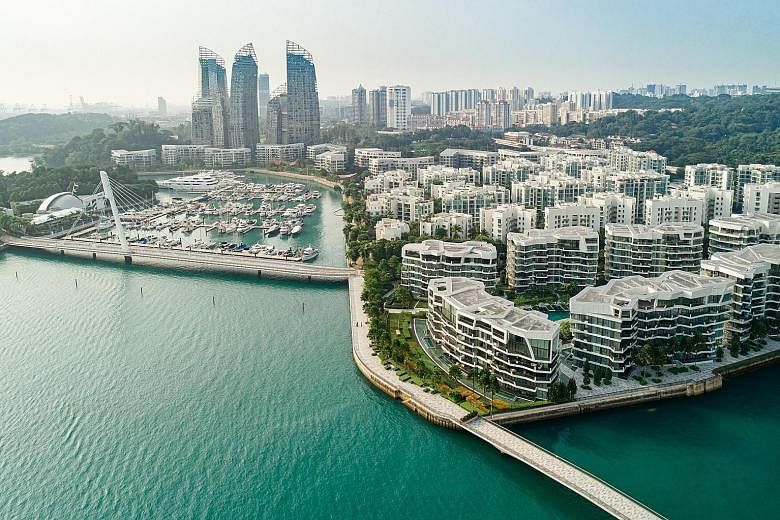Developer Keppel Land's carbon emission intensity last year was about 22 per cent below that of 2010 - beating its target of a 16 per cent reduction by 2020.
The firm aims to achieve a 40 per cent cut from 2010 levels by 2030, it noted in a sustainability report out today that also outlined the economic, environmental and social impact of its buildings and activities across Singapore and abroad.
Keppel Land has also aligned its strategy with six of the United Nations' 17 Sustainable Development Goals.
Its report noted that it has garnered 84 Building and Construction Authority (BCA) Green Mark awards for its properties in Singapore and overseas.
Keppel Bay Tower is also the first commercial project here to use renewable energy to power all its operations, including tenant offices.
The total estimated reduction in energy consumption from all its Green Mark-awarded projects, when fully completed, will be over 220 million kwh a year.
This is equivalent to the amount of energy required to power around 50,000 homes in Singapore for a year, and translates to annual cost savings of around $55 million.
Chief executive Tan Swee Yiow said in the report that the company will continue to sharpen its focus on innovation to provide sustainable solutions that will contribute to climate action.
He noted that the design and use of offices and homes will evolve in the wake of the Covid-19 pandemic, which has brought to the fore the importance of smart, flexible and sustainable designs, as well as building features that improve health.
"These are attributes that Keppel Land's developments have long been known for, and we will continue to seize business opportunities in smart, green developments of the future," Mr Tan added.
The company has set a target to invest an average of 2 per cent of its annual profit to support sustainable development by 2030.
Last year, it launched an initiative to invest $500,000 a year in seed funding for innovative ideas devised by its staff.
Keppel Land staff also clocked up about 8,050 volunteer hours through community outreach activities and sponsored programmes here and overseas, the report noted.
The projects which staff participated in locally include the BCA-Keppel Land public outreach programme GreenSeeds, a three-year initiative completed last year that involved nine schools creating green spaces within their compounds as part of efforts to raise awareness of conservation and resource efficiency.
The firm also worked with partners in China to provide teaching resources to schools in impoverished areas in Yunnan province and continued its partnership with the Singapore International Foundation for the second phase of a mobile library scheme in Ho Chi Minh City.


